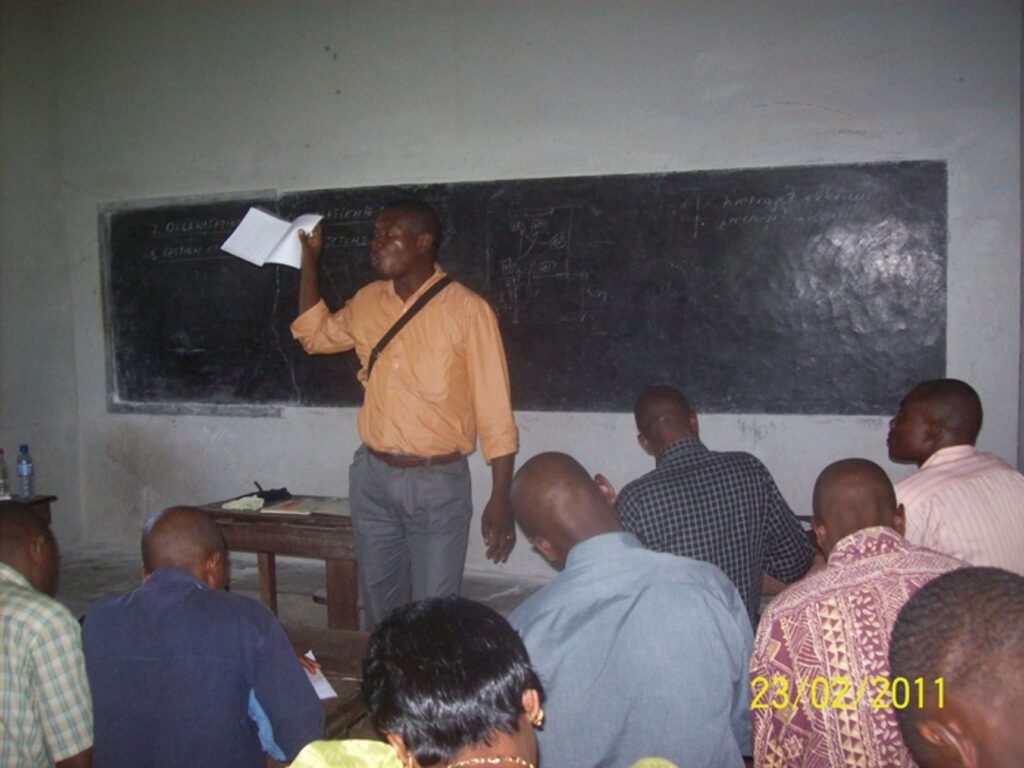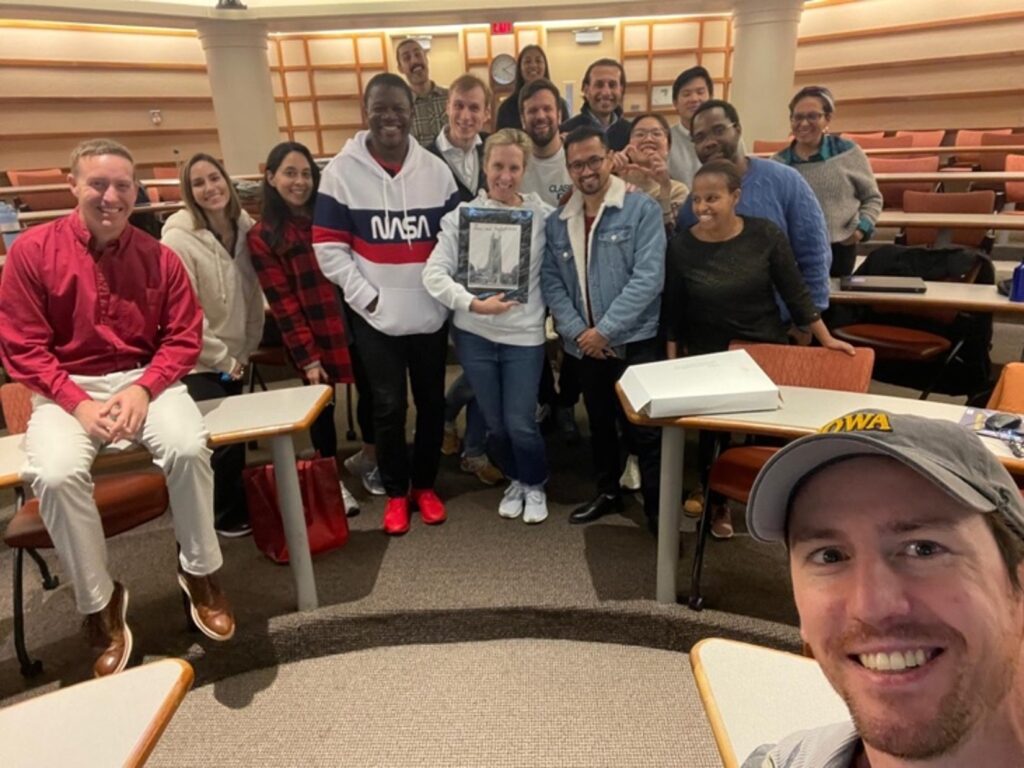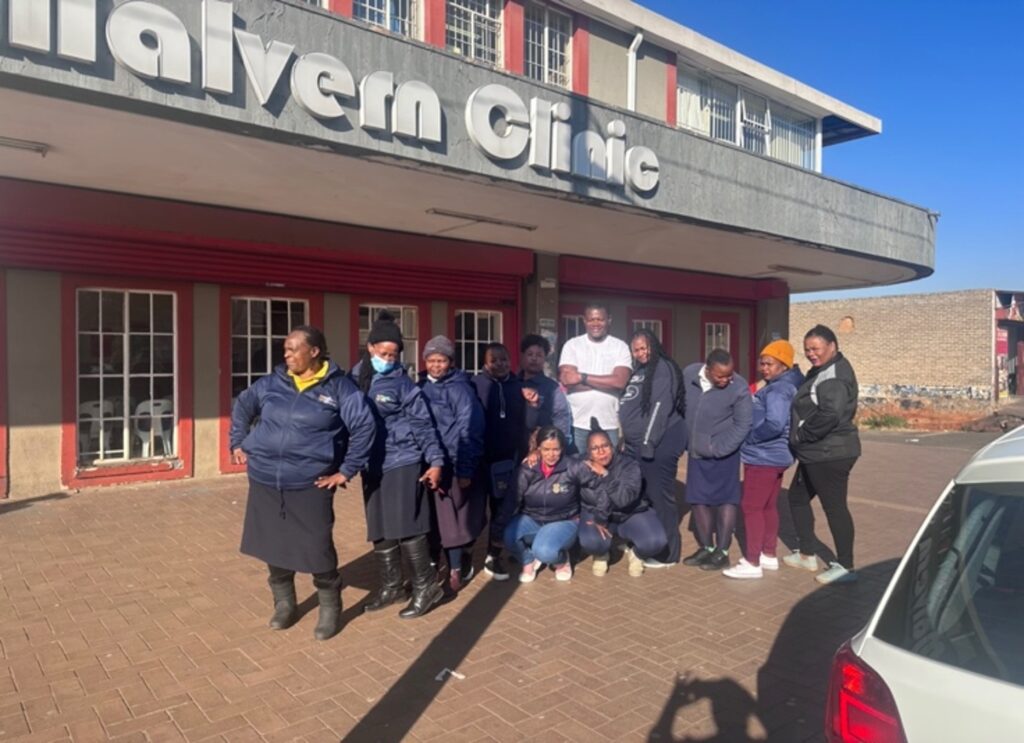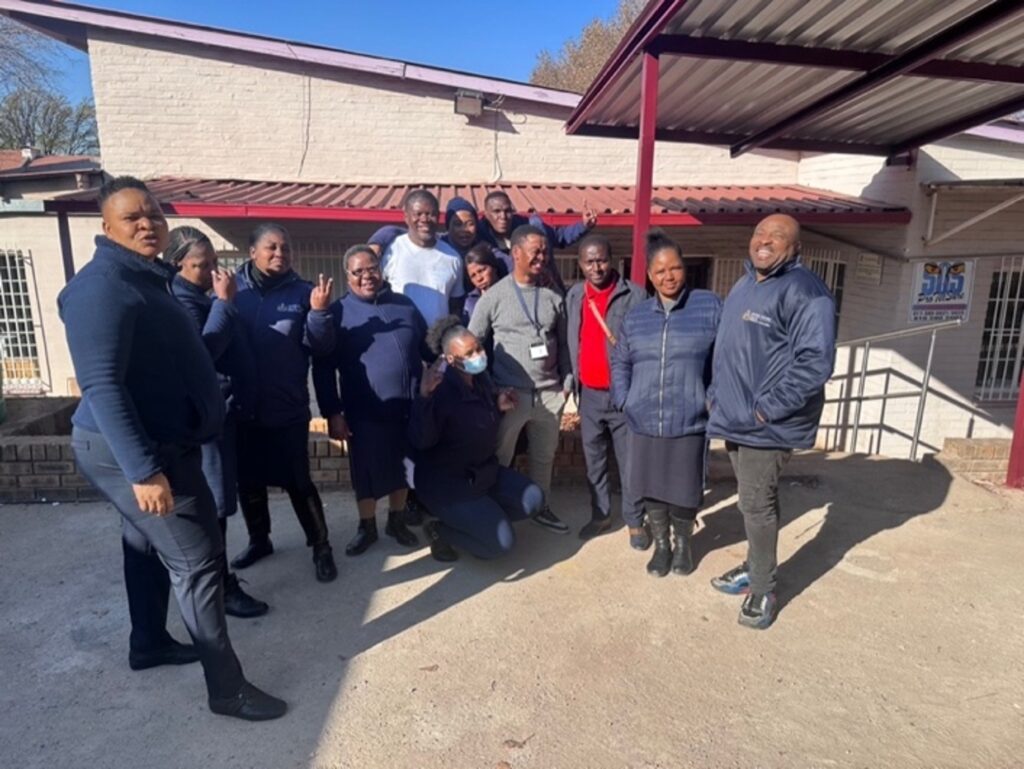“What Role can Community Health Workers (CHWs) Play in Addressing Issues such as Gender-Based Violence (GBV)?”
By Alexis Mwanza Kabongo (UNC MPH’ 24)
Summer 2023 AFE Blog Post Series
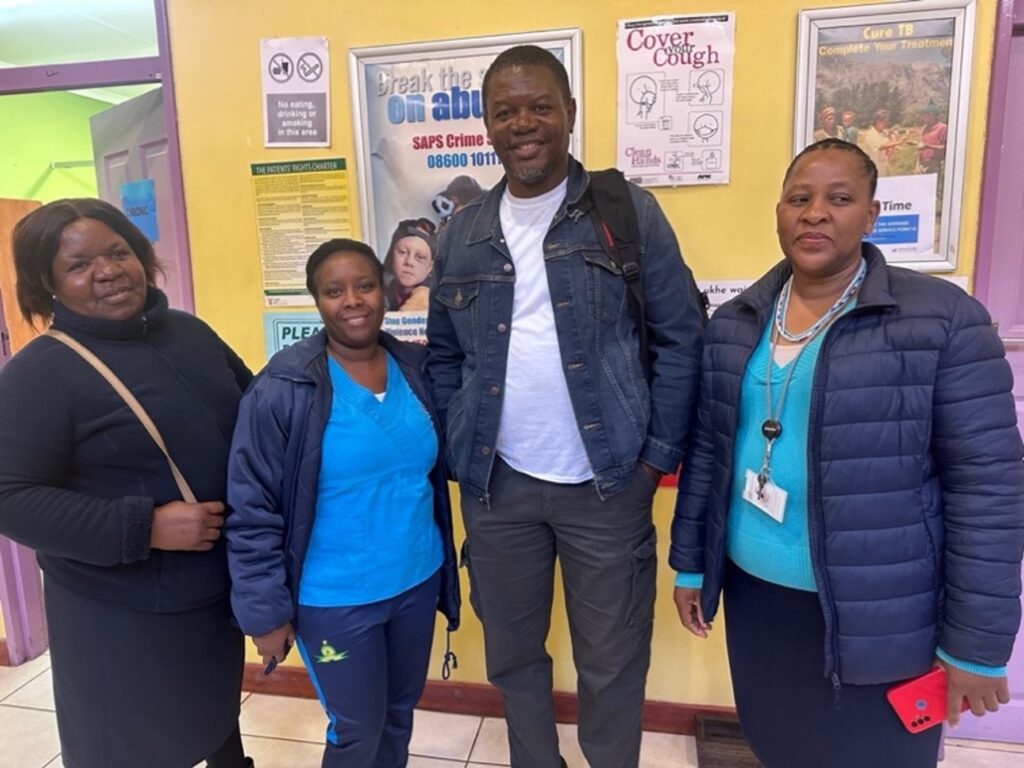 During my career as a Public Health Medical Doctor, I participated in recruiting and training CHWs in order to understand their contribution and impact within their communities. In the DR Congo, CHWs helped to increase immunization coverage for children under five years and pregnant women. While working in different communities and being part of the President’s Malaria Initiative (PMI) project, I had the opportunity to witness CHWs’ contribution in helping to reduce mortality and morbidity caused by malaria. The CHWs role was to sensitize the community to keeping their environment clean, using bed nets and going to health facilities for any symptoms of malaria. In DR Congo, CHWs also helped a lot in the fight against the Ebola Outbreak which killed millions of people. Finally, CHWs were used to sensitize the population against the COVID-19 pandemic. This shows the key role CHWs play in the healthcare system.
During my career as a Public Health Medical Doctor, I participated in recruiting and training CHWs in order to understand their contribution and impact within their communities. In the DR Congo, CHWs helped to increase immunization coverage for children under five years and pregnant women. While working in different communities and being part of the President’s Malaria Initiative (PMI) project, I had the opportunity to witness CHWs’ contribution in helping to reduce mortality and morbidity caused by malaria. The CHWs role was to sensitize the community to keeping their environment clean, using bed nets and going to health facilities for any symptoms of malaria. In DR Congo, CHWs also helped a lot in the fight against the Ebola Outbreak which killed millions of people. Finally, CHWs were used to sensitize the population against the COVID-19 pandemic. This shows the key role CHWs play in the healthcare system.
When I heard about the Rotary Peace Fellowship, my first thought was that the fellowship was an opportunity to bridge health and peace together, as we know there is no health without peace. My question coming in to the fellowship was how can CHWs be the bridge between health and peace? The answer to this question is in the innovation I wrote about in the Introduction to Peace and Conflict Resolution class and in the Applied Field Experience with the “Asiphephe” project.
For the Introduction to Peace and Conflict Resolution class, my innovation was to train CHWs in conflict resolution and peacebuilding. The experience with CHWs can be successful in peacebuilding and peace resolution as it is successful in the healthcare system.
Gender-Based Violence/Intimate Partner Violence (GBV/IPV) is a form of conflict that is becoming a worldwide issue involving mostly the safety of women and children. Currently, one-third of women globally experience intimate partner violence (IPV). IPV encompasses any “behavior within an intimate relationship that causes physical, sexual, or psychological harm, including acts of physical aggression, sexual coercion, psychological abuse, and controlling behaviors”. Pregnant women worldwide are also victims of IPV. Both maternal and infant health are negatively affected by IPV. The prevalence of IPV in South Africa is among the highest in the world.
For the Applied Field Experience, I am currently working with CHWs who are trained to address IPV and mental health in the Jeppe and Malvern clinics in Johannesburg, South Africa. I met and discussed with brave individuals who are part of the “Asiphephe” project (“Let’s be free” in Zulu). This project is the first step in involving CHWs in conflict resolution. In South Africa, the CHWs are called World-Based Outreach Teams (WBOTs). The biggest challenge clinics are facing in Johannesburg is the large number of patients seeking medical attention.
I am working with the WBOTs and other healthcare workers at the clinics in order to understand how to implement a reliable and sustainable referral system. This system will help pregnant women who are victims of IPV and at risk regarding their mental health. The system will also address non-adherence to treatment for those who are HIV-positive.
Working with WBOTs to develop a reliable referral system for women who are victims of IPV is very important in addressing this IPV conflict which is growing in families and communities. WBOTs have empowered women to speak out against the violence in their homes and break cultural barriers such as staying silent while being abused by men.
However, WBOTs are faced with challenges which prevent them from doing their work properly. Currently, South Africa is in a safety crisis. Many clinics have been attacked by armed individuals, and some patients who don’t want to queue show up with guns demanding to be treated first. Due to the long queues and the clinics being very busy, there are a lot of fights between the patients. Healthcare workers continue to work hard in South Africa, but due to the shortage of staff, it is difficult to address current challenges at the clinics.
This Applied Field Experience is a very good start in involving CHWs/WBOTs in peacebuilding and conflict resolution. We are slowly building the bridge between the health and peace concepts under the GBV umbrella.
